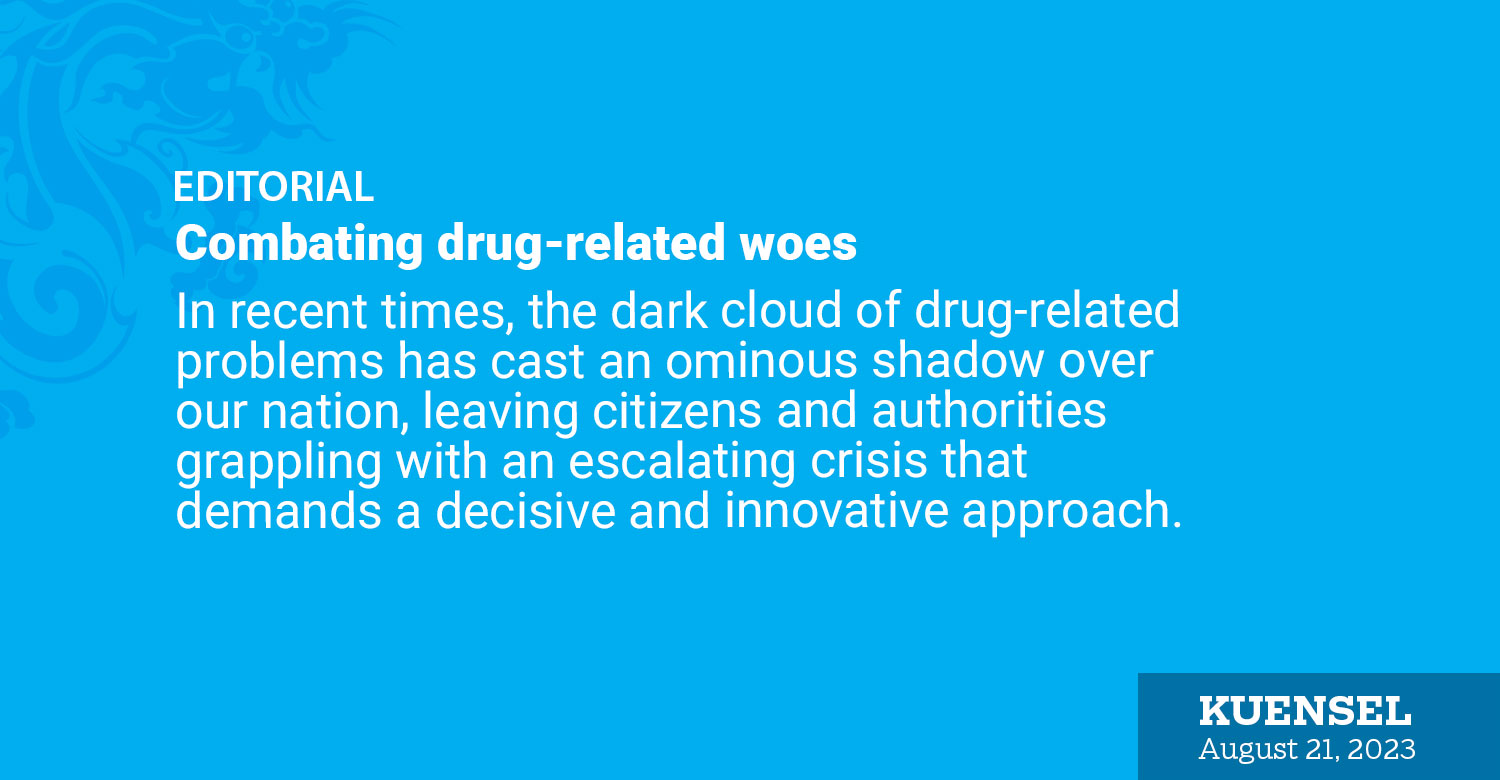In recent times, the dark cloud of drug-related problems has cast an ominous shadow over our nation, leaving citizens and authorities grappling with an escalating crisis that demands a decisive and innovative approach. With last year’s reported 761 drug crimes marking a staggering high over the past half-decade and an alarming surge of 430 cases compared to the preceding year, it is clear that a new strategy is not just needed, but imperative.
The grim statistics are made all the more distressing by the fact that more than 700 young adults aged 18 to 24 found themselves entangled in drug-related cases last year alone. This generation, brimming with potential and promise, is at risk of being ensnared in a cycle of despair, potentially robbing the country of the very human capital it needs to thrive in an ever-changing global landscape.
While traditional punitive measures like incarceration have their place in society, it is crucial to recognise their limitations when it comes to addressing the intricate web of issues surrounding drug-related crimes. Rather than simply locking away individuals, our focus should shift towards a multifaceted approach that prioritises demand reduction as a cornerstone in tackling this growing menace.
Incarceration, while capable of temporarily removing offenders from the streets, often fails to address the root causes of drug-related problems. It does little to address the allure of drugs in the first place, nor does it offer tangible solutions to the societal pressures that drive individuals towards substance abuse. To truly create lasting change, a comprehensive strategy must be adopted—one that is centered on reducing the demand for drugs through education, awareness, and rehabilitation.
As the “Yes, We Care” advocacy campaign sweeps across the eastern region of our country, it stands as a beacon of hope amidst the gloom. This month-long initiative, which began in Mongar and is set to culminate in Pemagatshel on August 31, demonstrates the power of community-driven action in addressing the drug-related scourge.
Demand reduction encompasses a range of measures that target the heart of the drug problem. Education campaigns, particularly those geared towards our youth, can provide the knowledge and awareness necessary to make informed choices about substance use. Comprehensive rehabilitation programmes should be made accessible to those struggling with addiction, offering them a lifeline to recovery rather than perpetuating a cycle of incarceration. Furthermore, addressing the socioeconomic factors that contribute to drug abuse is paramount—when individuals are provided with alternative pathways and opportunities, the pull of drugs can lose its grip.
The current wave of drug-related problems presents an opportunity for our society to evolve. Let us remember that the true strength of a nation lies in its ability to protect and uplift its most vulnerable citizens.


